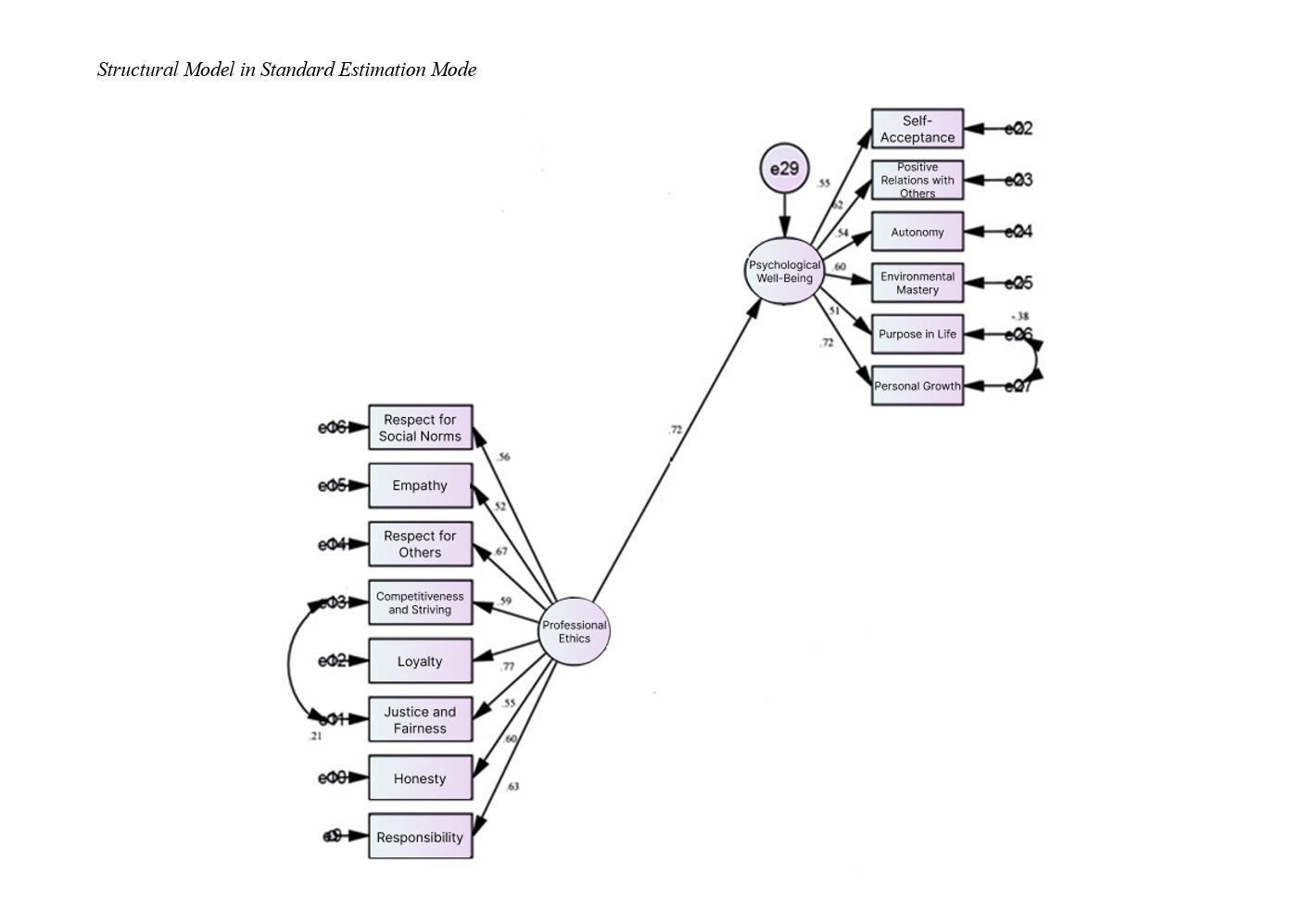Examining the Impact of Professional Ethics on the Psychological Well-Being of Accountants
Keywords:
Professional Ethics, Psychological Well-Being, AccountantsAbstract
Considering the nature of professional ethics in an accounting system and the emphasis on psychological well-being, the aim of this study was to examine the impact of professional ethics on the psychological well-being of accountants. The statistical population of this descriptive-correlational study included all certified accountants of Iran Khodro Company, totaling 10,000 individuals, based on a human resources inquiry in the company in 2024. The sample size was determined to be 373 individuals using Cochran's formula and selected through a simple random sampling method. In this study, standardized questionnaires of Kaduzier’s Professional Ethics (2002) and Psychological Well-Being (1980) were used for data collection. Data analysis was conducted using SPSS statistical software and AMOS software. The results showed that the standardized path coefficient between the variable of professional ethics and psychological well-being was 0.72, indicating the impact of professional ethics on psychological well-being. Additionally, the t-statistic was approximately 8.517, which, in addition to being greater than the critical value of 1.96, also surpassed 2.58. Consequently, it can be concluded with at least 95% confidence that there is a significant relationship between professional ethics and psychological well-being. Overall, it can be concluded that adherence to professional ethics has a positive and significant effect on the psychological well-being of accountants. Therefore, organizations can utilize these findings to develop strategies for strengthening ethical values and creating a positive work environment to enhance both the productivity and performance quality of accountants and the long-term sustainability and success of the organization.
Downloads

Downloads
Additional Files
Published
Issue
Section
Categories
License
Copyright (c) 2024 Arameh Malaki Khoshkbijari (Author); Ali Zabihi (Corresponding Author); Mojtaba Rezaei Rad (Author)

This work is licensed under a Creative Commons Attribution-NonCommercial 4.0 International License.

















